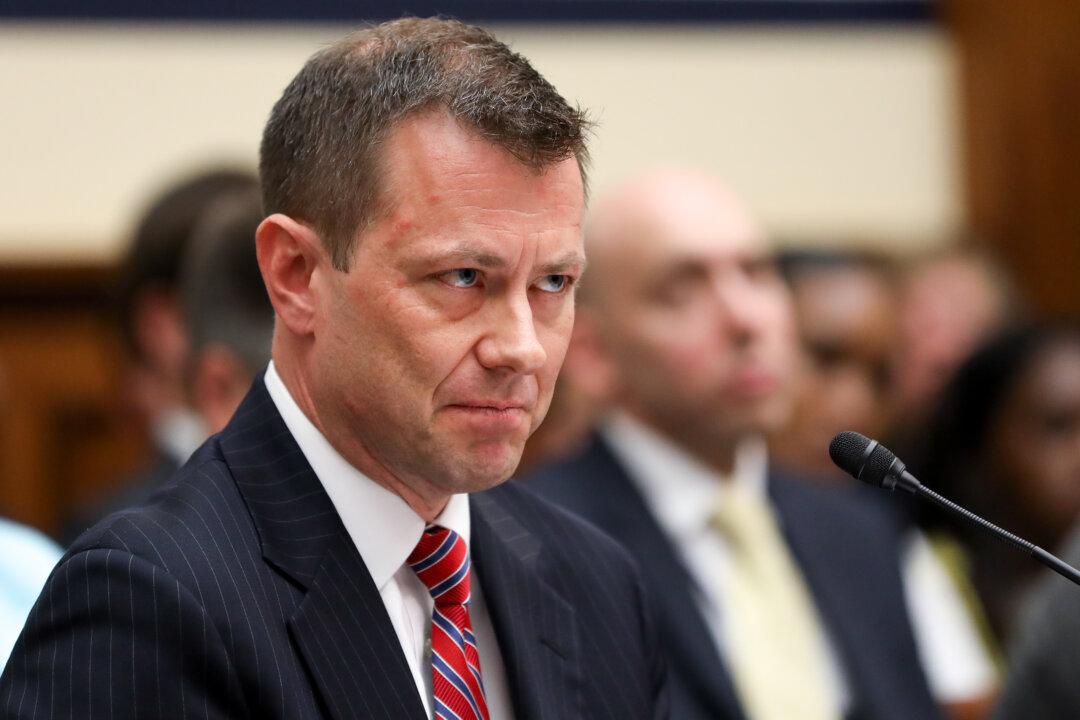The FBI’s termination letter to the official who led two high-profile investigations has been published, revealing another official made the choice to fire the agent because of “repeated, sustained errors of judgement.”
David Bowdich, the FBI’s deputy director, informed Peter Strzok that he was fired in August 2018. A draft of the termination letter was recently made public in a legal case brought by Strzok against his former employer.





